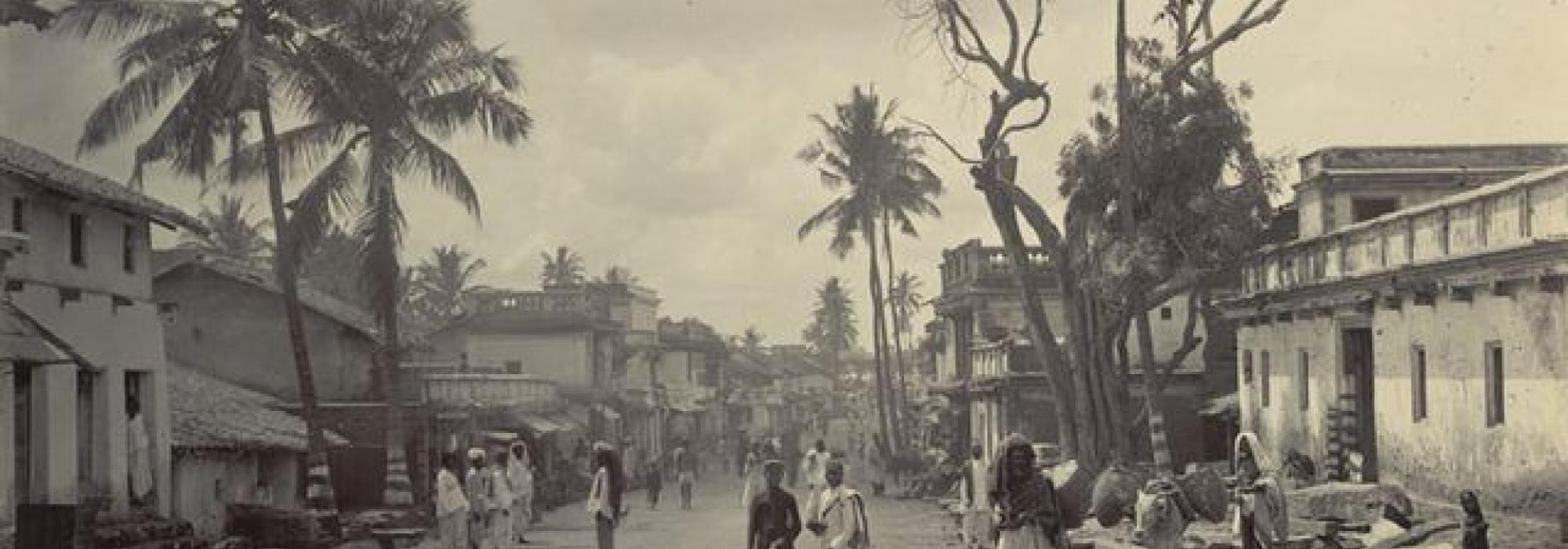Committment
When in college, if Venakatanaranappa had to quickly answer nature’s call, he would carry a small bottle full of water. Students who had observed him doing so, often gathered on either side of the corridors as he passed by to the washroom. They would tease him – “Here comes the procession with the bottle, here comes the procession with the bottle”. Venkatanaranappa often walked away turning a deaf ear to the taunts. This happened four to five times and the notorious students finding that their taunts bore no effect on their teacher, gave it up.
Venakatanaranappa never feared for lack of company or support to execute tasks he thought were right and dhārmic. He never spared a thought to take a check on the support or opposition he would encounter when he wanted to voice his idea on any matter. This was the case both at the University and in public gatherings. On several occasions, he was all alone, at times on the supporting faction and at other times in the opposition.
Venkatanaranappa had a specific way of working with candles too. There were certain rules he had created for himself and followed religiously. Whenever he was in ‘maḍi’ (a ritualistic sense of 'purity/ cleanliness'), he wouldn’t touch a candle. When he was on tours or visited other places where there was no other source of light, he would ask Venkannayya or somebody else who accompanied him to light a candle. The candle was to provide light as he cooked. Once when I was with him, I suggested that I could hold the candle for him. He said – “No, don’t!. You are talkative and you burst out into laughter frequently. Your arms that carry the candle might touch the utensils and defile them!'
Once, when I visited Jamakhandi, Alabala Venkataraya took me to for a visit to his grove which was located on the banks of the river Krishna. Venkatanaranappa was the chairperson of the Kannada Sahitya Sammelana that year. Looking at his face, one could figure that he had had a shave about eight to ten days back. I chanced upon spotting a barber there and pointed at him to Venkatanaranappa. As per my suggestion, he got himself shaved. However, as he was climbing down into the river to bathe, he recalled something and said – “Isn’ttoday an amāvāsya (no-moon day) ? It escaped my mind amidst your chatter! Why did you do this to me! I have now broken the tradition. Is this how ritualistic you are! ”
(Traditionally, brāhmaṇas did not have a hair cut or shave on the no moon days)
A Trouble
It was the ocassion of a wedding in Venkatanaranappa’s house. One night, about three to four days before the wedding, Venkatanaranappa came to my doorstep and called out for me. I was a bit worried, thinking that the wedding day was round the corner and he had come at this hour to my house. I went out and ..
Me: “What news, sir?”
V: “I have some difficulty! I have come to seek your suggestion.”
Me: “What is it?”
V: “You know this person xyz, right? Should I invite him for the wedding, or should I not?”
Me: “You may invite him! He is a nice person”
V: “But what if he comes because I have invited him”
Me: "What if he comes?"
V: "He has crossed the borders (of the land)!"
(Conservative brāhmaṇas thought that some kind of 'purity' is lost if one travels on sea)
Me: "Then, just don’t invite him!"
V: "How can I not invite him? He is a close relative of mine!"
Me: "So what? Even if he comes, he will silently sit at one place. He will receive the tāmbūla and leave."
V: "I don’t think he will stop at that. He will certainly join us for the meal."
Me: "Good! Let him stay back for lunch. There are several people partaking of the meal too …”
V: "It is not that simple! His women are going to accompany him. They will try entering the kitchen and lay their hands on the cooked food. They will want to help serving the guests. We can neither ask them to go ahead nor can we stop them. We will be tongue-tied. We all will feel embarrassed. Won't the food get defiled?”
I laughed and said –“You will need to manage such delicate situations in a gentle manner. You may avoid as many mistakes as possible, when it is under your purview. If there is a mishap without you being aware of it, you need not go in search of it”
It looked like he had taken my suggestion at least for the moment.
Perplexity with Procedures
It was the annual day of the Scholars' Association of Chamarajendra Sanskrit college in Bangalore. At nine in the morning, Prof. C.R Narasimha Shastri had delivered the Keynote address and the people who had gathered there were coming out of the hall, contented. Someone there went to Venkatanarappa who was in the audience as well and discreetly called him aside. He whispered something to him and Venkatanaranappa who was cheerful until then turned a bit anxious. His anxiety turned into harshness. He called me near him:
V: "Did you hear about the foolishness?"
Me: "What is it, sir?"
V: "Don’t you know? It apparently happened during the yāga that abc Shastri is performing in the Ganesha temple in Basavanagudi. Last night, as the yāga was going on, one of the ṛtviks went out to answer nature’s call. He came back and continued the yāga without even washing his feet or performing ācamana. What kind of an injustice is this!
(ācamana is a ritual performed to 'purify' oneself after some supposed defilement)
His exclamation tickled me a bit.
V: "And you laugh? Is this how you much you adhere to dharma?"
Me: "What can we do about it sir?"
V: "You ask me what we should do? We must punish him. We must make sure that a person like him should not exist in the brāhmaṇa-maṇḍali"
(brāhmaṇa-maṇḍali is the community of the brāhmaṇas)
Me: "Alright. Are you sure you heard the truth? Who saw the incident happening?"
V: "GHI Shastri says so – do you think he will ever lie?"
Me: "Let us, for a moment, assume that it is not false. He might have misunderstood the ṛtvik's intensions, right? The brāhmaṇa might have gone out from the place just to scratch his back or to pat his tummy. How can we say that he actually went to answer nature’s call and caused defilement to the yāga ? Shouldn’t we ask him what really happened and give him the benefit of doubt? Would it be just to punish him without understanding everything in detail? If we dig into the matter, the brāhmaṇa might have something to say about the person who complained to you. The conversation and the chain of accusations might lead us to unforeseen people and places. We might end up calling random people as witnesses. We don’t know who will accuse whom of what! It will be all the more difficult for us to know the truth. This will only lead to jealousy and strained relationships."
V: "If so, what do you suggest we do? Was this alright?"
Me: "There is nothing we can do. Moreover, it is not our duty to act here. Just because someone has complained about someone else, we need not dig into the matter.”
As we were conversing, Motaganhalli Subrahmanya Shastri came to us. To my fortune, he took my side:
S: T"his brainless dispute between the Vaidika brāhmaṇas knows no beginning or end. If you try getting involved in this, it is like putting your hand through a red-anthill."
By then, Venkatanaranappa’s exasperation had cooled own a bit.
V: "What – so, this is what you both think?"
Finally, we decided to drop the matter there.
Firmness of Mind
Venkatanaranappa had his share of family problems. There were diseases, deaths and poverty in his family that often caused him distress. His family members underwent depression too. Though he could easily get agitated, Venkatanaranappa always thought out his decisions well. If someone explained the pros and cons of his actions to him and provided him with objective suggestions, he would reconsider his previous decisions and gladly correct himself. Among his qualities, his steadfastness stood out.
Adherence to Rules
Venkatanaranappa was not a great conouisseur of food. He was of the opinion that spending too much of time on food only spoiled the business at hand. He first noticed my weakness for food when I joined as the co-chair of the Kannada Sahitya Parishat. Along with a few of my friends including Venkannaya, I had made arrangements for some snacks to be served before every meeting of the Parishat. Accordingly, vangibath and sweet sajjige were served. As soon as this caught Venkannayya’s eye, he stood up, shocked, as though he had spotted a poisonous snake. “What is this Nonsense!” he exclaimed. We tried to console him. He did not lend his ear to us and walked out of the meeting. When we went to him and requested him to join us back, he retorted – “Let all the Nonsense you have ordered for, get over. I’ll come”
Venkatanaranappa had quite a conservative outlook in everything and was a hard disciplinarian. He did not refuse food and drinks. He had invited us to his house several times and hosted us well. Yet, he never gave up his maḍi.
This is the seventeeth essay in D V Gundappa’s magnum-opus Jnapakachitrashaale (Volume 3) – Sahityopasakaru. Thanks to Hari Ravikumar for his thorough review















































